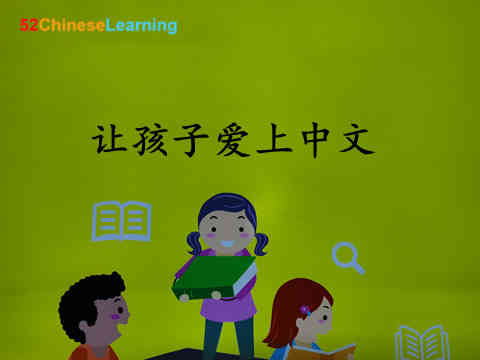链接复制成功!现在分享给好友吧。
Among overseas Chinese children, many ABCs children blurt out: “I hate Chinese”. As descendants of the Chinese, why did they turn this sentence into a curse and spread it in various Chinese schools? Have we really analyzed the situation of these children learning Chinese? Should we learn Mandarin for kids to know what are the difficulties? How can we improve the situation of ABCs learning Chinese? Here, I propose some solutions to help these children.

There are many ways to solve the problem. However, to start, we need to focus first on the basics. The simplest starting point is to give up the existing complete set or cost teaching materials, and let parents find realistic materials as teaching materials. They can look for Chinese newspapers and high-quality blogs about overseas life. This can activate the teacher’s own creativity, instead of just going through the motions according to the textbook step by step.
In addition, teachers should change the core of learning from content to task in teaching methods. Don’t focus on textbooks, focus on tasks. For example, let children learn to write their own names, describe their hometown, and write a letter to their families in China. At the end of a semester, they will learn several imperative language learning concepts and learn some Chinese characters and expressions. This may have a better effect. At least students know how to use it after learning, instead of years of “laying the foundation”, there is a break between learning and application. Subdivide learning into phased goals and learn knowledge in application, and the effect should be better.
Now the technical conditions are very good, and it is also an excellent opportunity to improve teaching. For example, children can open a Weibo or WeChat in China, so that children can learn unconsciously by sharing, communicating, and interacting with relatives and friends in China. This way, they can have an engaging interaction with their peers. Of course, if there is open cyberspace, parents need to strengthen support, education, and supervision in privacy protection and cyberbullying.
Changes in writing tools can also affect teaching methods. In the past, some learning methods should be abandoned are one stroke at a time, one picture at a time, and writing in order. This kind of training is the product of the handwriting environment in the past. At present, most people write with computers and other tools. It is better to teach children how to use the spelling input method or the application of a tablet on an iPad. They can even allocate the skill and learn voice input.
If the quality of teaching can’t be improved, and children go to school with hatred driven by the pressure of parents, it will be blasphemous to Chinese people and their culture, so it is better to drop out of school early. If they don’t study now, at least they have more time to play and have a happy childhood. They are not so disgusted with the Chinese. Maybe when they grow up, After going to high school and university, young people will actively seek their roots, enlighten themselves, and find their own learning out of the search for their own identity.
The situation and frustration of ABCs in learning Chinese are prevalent in local Chinese schools. To some extent, it highlights various problems existing in the Chinese educational approach. This frustration is similar to the failure of foreign language teaching in China. Except, you can’t blame the “system” for the latter, but the role of family environment and parents’ thinking in children’s growth, I can’t emphasize this more, but. If the parents’ thinking doesn’t change, systemic alterations will have little effect.
Your first 1-on-1 Chinese lesson offer